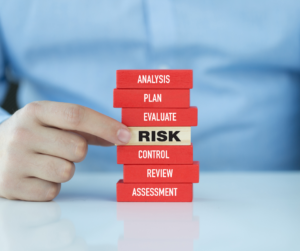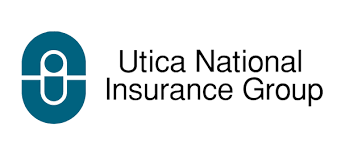10 Key Elements of Risk Management for Homeowners
August 22, 2023
 Owning a home is a large part of the American dream, but it also comes with a set of responsibilities. One of the most crucial being risk management. Wait a minute you might say, risk management? You’re probably thinking that’s a corporate thing. A worry for big business, not a homeowner.
Owning a home is a large part of the American dream, but it also comes with a set of responsibilities. One of the most crucial being risk management. Wait a minute you might say, risk management? You’re probably thinking that’s a corporate thing. A worry for big business, not a homeowner.
But if you own a home, you need to be proactive in identifying potential risks and taking steps to mitigate them. By implementing effective risk management strategies, you can safeguard your investment, protect your loved ones, and ensure peace of mind.
In this article, we’ll delve into 10 key aspects of risk management for homeowners.
1. Understanding the Risks
Start by identifying the risks that your home and property might be exposed to. These could include natural disasters such as earthquakes, floods, hurricanes, and wildfires, as well as human-caused risks like theft, vandalism, and accidents. By recognizing these risks, you can develop a targeted risk management plan.
2. Adequate Insurance Coverage
Homeowners insurance is the foundation of risk management. It provides financial protection against various perils that might damage your home or belongings.
Ensure you have the right coverage for your property’s value and your possessions. Don’t forget to include liability coverage, which protects you in case someone is injured on your property.
Call us at Scalzo, Zogby and Wittig, Inc. and we’ll review your home’s replacement cost, your limits of personal liability, and your credits and discounts. Whether you are a current customer or looking for a competitive quote, we’ll always offer you the right coverage at the best price.
3. Regular Maintenance
Preventive maintenance is a key component of risk management. Regularly inspect your home’s structure, roof, plumbing, electrical systems, and appliances. Addressing minor issues promptly can prevent them from escalating into costly problems.
4. Disaster Preparedness
Depending on your geographical location, certain natural disasters might pose a higher risk. For us here in the Mohawk Valley that could include powerful thunderstorms, tornadoes, floods and catastrophic snow storms.
Create a disaster preparedness plan that includes evacuation routes, emergency contacts, and essential supplies. Familiarize yourself with local emergency services and community resources.
5. Fire Safety Measures
Install smoke detectors on each floor of your home and test them regularly. Equip your kitchen with a fire extinguisher and follow safe cooking practices. Consider fire-resistant materials for your home’s construction and landscaping.
6. Security Enhancements
Implement security measures to deter burglaries and break-ins. Install robust locks on doors and windows, and consider a security system with alarms and surveillance cameras. Outdoor lighting can also discourage potential intruders.
7. Adequate Lighting
Good lighting both inside and outside your home is essential for preventing accidents. Adequate lighting reduces the risk of trips, falls, and other mishaps, especially in areas like staircases, hallways, and entrances.
8. Protecting Against Water Damage
Water damage is a common and costly risk for homeowners. Regularly inspect your roof and gutters, and ensure proper drainage around your property. Consider installing sump pumps and backflow valves to prevent basement flooding.
9. Childproofing and Pet Safety
If you have children or pets, take extra precautions to ensure their safety. Childproof cabinets and secure heavy furniture to walls. Keep hazardous substances out of reach, and create pet-friendly spaces that minimize potential hazards.
10. Documenting Valuables
In the event of theft or damage, having an inventory of your possessions can expedite insurance claims. Photograph or videotape your belongings and keep records of purchase dates, values, and receipts.
The upshot: risk management for homeowners involves a combination of proactive measures that protect your property, loved ones, and financial well-being.
By understanding potential risks, securing adequate insurance coverage, implementing preventive measures, and being prepared for emergencies, you can significantly reduce the impact of unforeseen events.
Regularly reassess your risk management strategies to ensure they remain effective and aligned with your changing needs. Remember, a well-prepared homeowner is better equipped to face challenges and protect what matters most.
Until next time,
Your SZW Team
SZW Insurance is your Utica area Trusted Choice™ independent insurance agent. Call us for a quote on insurance for your home, car, business, or life at 315.792.0000. Or request a quote here.



